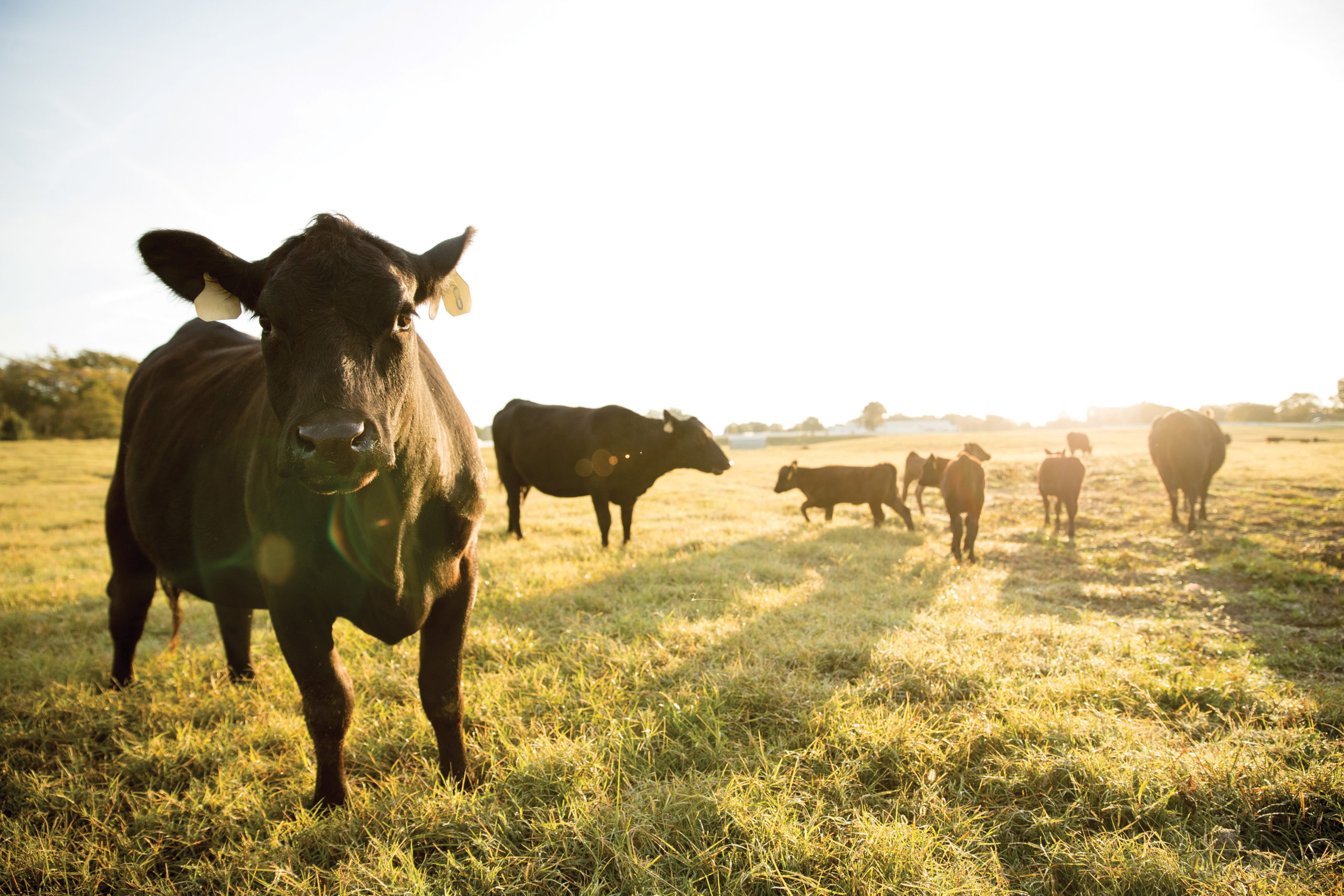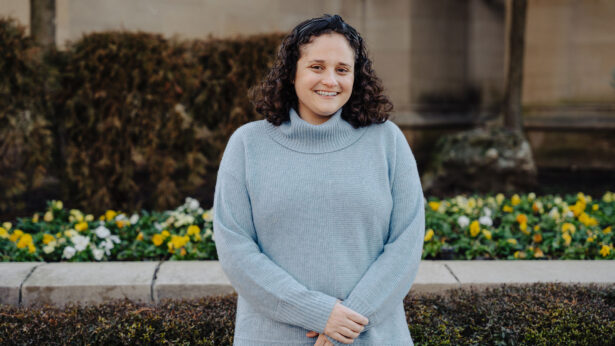By Amy Blakely
Featured photo by Raffe Lazarian
From India to Texas and Tennessee, Rachna Tewari has seen the effects of climate change on agriculture. It’s a global crisis, but she believes that mitigating the damage must start at home.
An associate professor of agricultural economics and agribusiness at UT Martin, Tewari is a driving force behind the Climate Literacy for Agriculture and Sustainable Societies (CLASS) program. A partnership between UT Martin and Murray State University in Kentucky, the program aims to increase education about climate change in rural communities. It is funded by the Capacity Building Grants of the U.S. Department of Agriculture.
“Climate change is a social issue, a community issue, a global issue,” Tewari says. “Given my background, living in different countries, it’s an issue close to my heart.”
First-hand, global perspective
Tewari was raised in Nainital, India, a Himalayan resort town.
“I grew up mostly in cities, but we did a lot of summertime traveling,” she says.
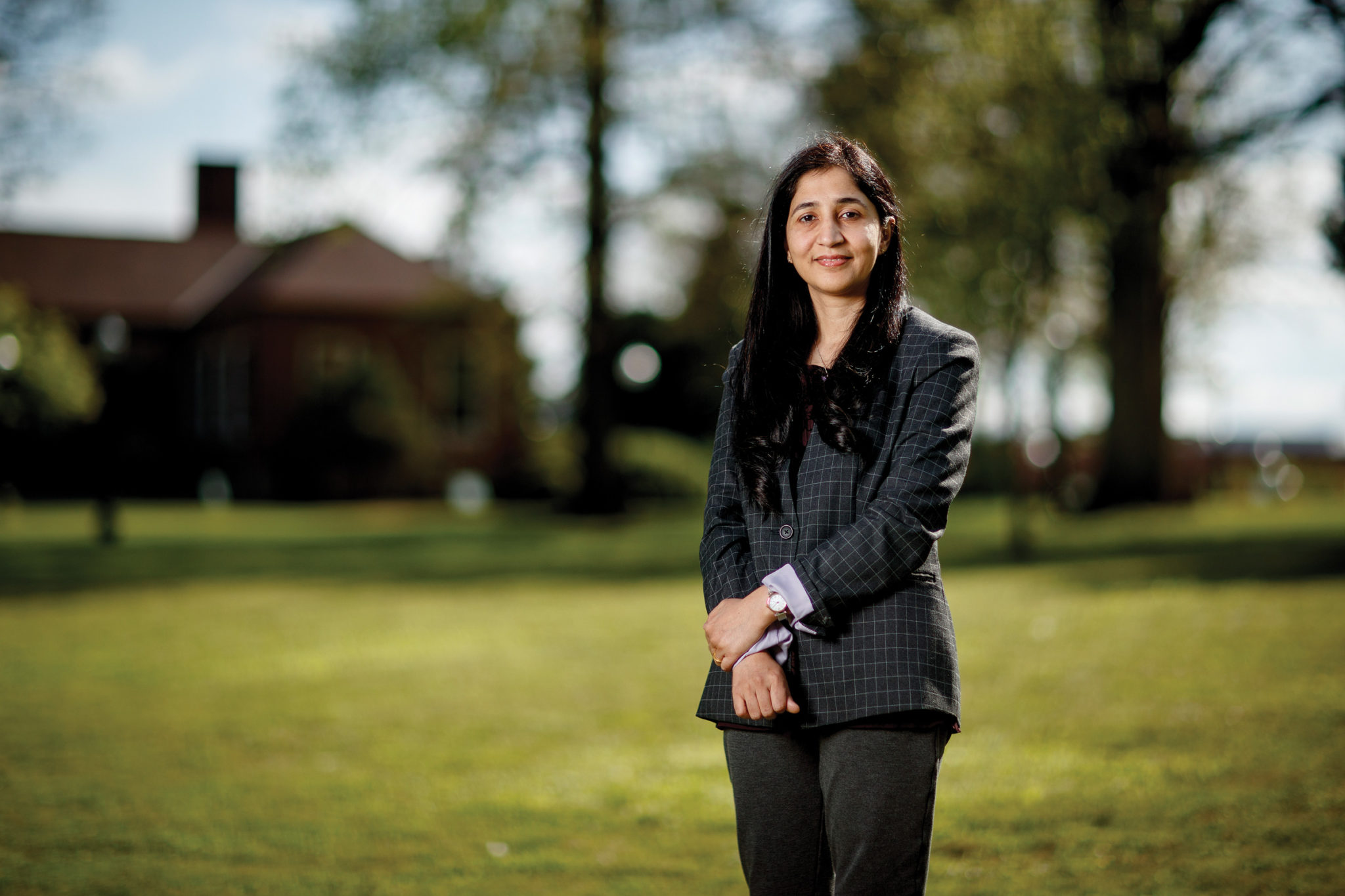
Photo by Nathan Morgan
When she visited rural areas where her father grew up, Tewari was fascinated by the fields and farms. In time, her intrigue became an academic pursuit. She earned a bachelor’s degree in agriculture and a Master of Business Administration in agribusiness in India.
Tewari became interested in how the climate—especially heat waves and droughts—was impacting India’s agricultural sector.
To further her studies, Tewari moved to the United States, where she earned a master’s degree in agricultural business and economics at West Texas A&M University and a doctorate in agricultural and applied economics at Texas Tech University.
Hot and dry, the Panhandle of Texas was a textbook on agricultural climate issues. Farmers sought ways to deal with increasing water scarcity—developing varieties of mainstay crops, like corn and cotton, that need less water; switching from crops, like corn, that need a lot of water to crops, like sorghum, that need less; and devising more efficient irrigation systems.
While the debate over climate change rages in some places, there weren’t many doubters there.
“Farmers have become more and more accepting because they see it firsthand,” Tewari says.
Tewari’s dissertation focused on climate change and water management in Northwest Texas. In 2013, after completing her doctorate, Tewari joined the UT Martin faculty.
“People here relate to nature and the environment,” she says. “It’s the lifeblood of this community.”
While Tennessee doesn’t have severe water issues like Texas, there are still concerns.
“Bad rain years—like 2012—showed farmers they needed to look to irrigation and the way they manage their crops,” she says.
Higher temperatures can impact soils through water loss, so farmers plant cover crops—often legumes and radishes—that are tilled back into the soil to enrich it and sequester carbon. Tennessee is also a leader in no-till agriculture; by controlling weeds through herbicides rather than plowing, soil erosion can be reduced.
Sharing the knowledge
A few years ago, Tewari and two colleagues—Robert Mark Simpson, a geography professor, and Joey Mehlhorn, a professor of agricultural economics and the Gilbert Parker Chair of Excellence—decided they wanted to enhance climate change education in the rural communities around them.
From policies to practices, the future of agriculture will depend on whether “the current generation is educated about the science of climate change,” Tewari says.
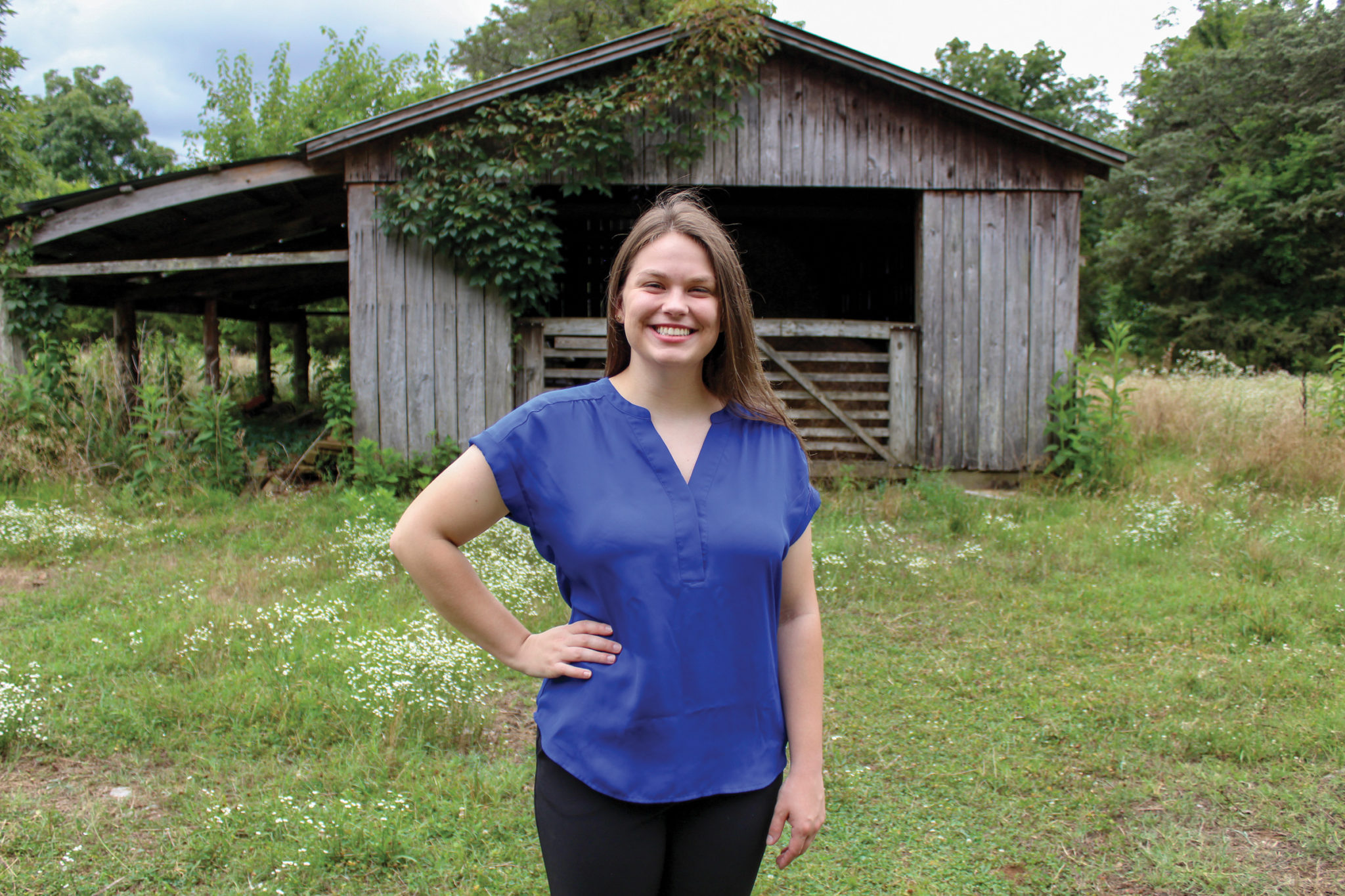
Photo by Shelbie Warner
CLASS was created in 2017, and with an extension due to the pandemic, the project is scheduled to wrap up in January 2022.
They’ve made good strides. At UT Martin, which has about 350 agricultural business students, climate change is now part of a few major courses, and students can minor in sustainability. The minor was initiated through the efforts of the Sustainability Center at UTM, led by Eric Pelren, a professor of wildlife biology.
The team also has helped incorporate climate change into undergraduate and graduate curricula at Murray State and UT Martin and launch dual-enrollment classes for high-school students at both universities.
UT Martin faculty, partnering with colleagues at Murray State and the Global Teach Ag Network of Penn State University, recently hosted a three-day conference where 22 high-school agriculture teachers heard from experts and developed teaching tools with a focus on climate change and agriculture.
“I think (teachers and students) acknowledge that climate change is an important issue,” she says. “They are always looking for scientific facts and evidence and thinking about ways to mitigate climate change.”
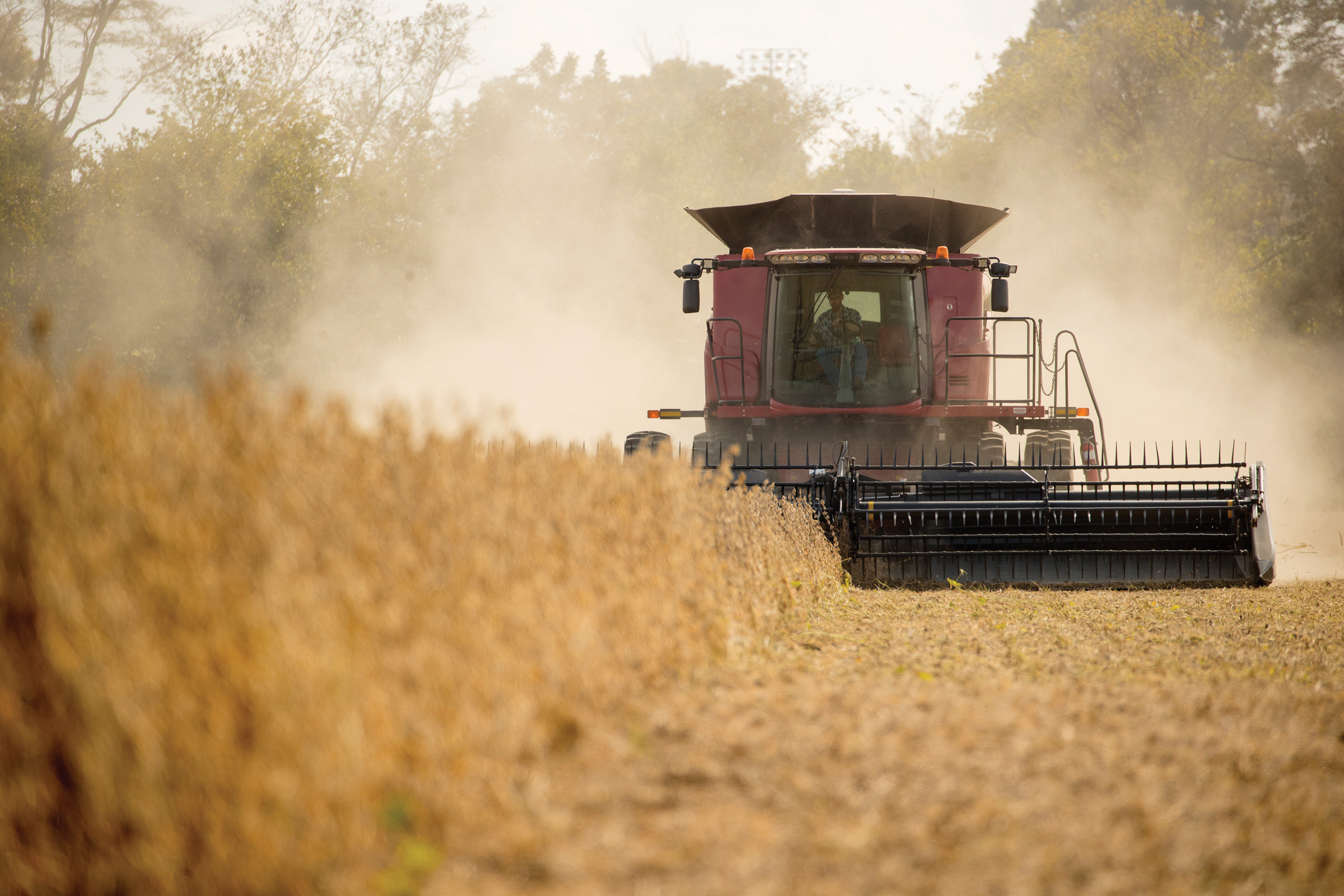
Photo by Nathan Morgan
Encouraging students to dig in
Another objective of CLASS is to engage college students in climate change research.
Tewari is working with two graduate students and two undergraduate students. Montana Wright, a senior pre-veterinary major from Murfreesboro, and Anna Gafford, a senior agribusiness major from Smyrna, presented their research at the International Conference on Climate Change in February.
Gafford assessed carbon emissions in West Tennessee and looked at farming practices that can help reduce them.
“I grew up spending my summers at my grandfather’s beef-cattle operation in East Tennessee, so agriculture has always been a huge part of my life,” Gafford says. “For the first 18 years of my life, climate change was never taught in school. It was not until I reached college that climate change was finally taught in my intro-level geology course.”
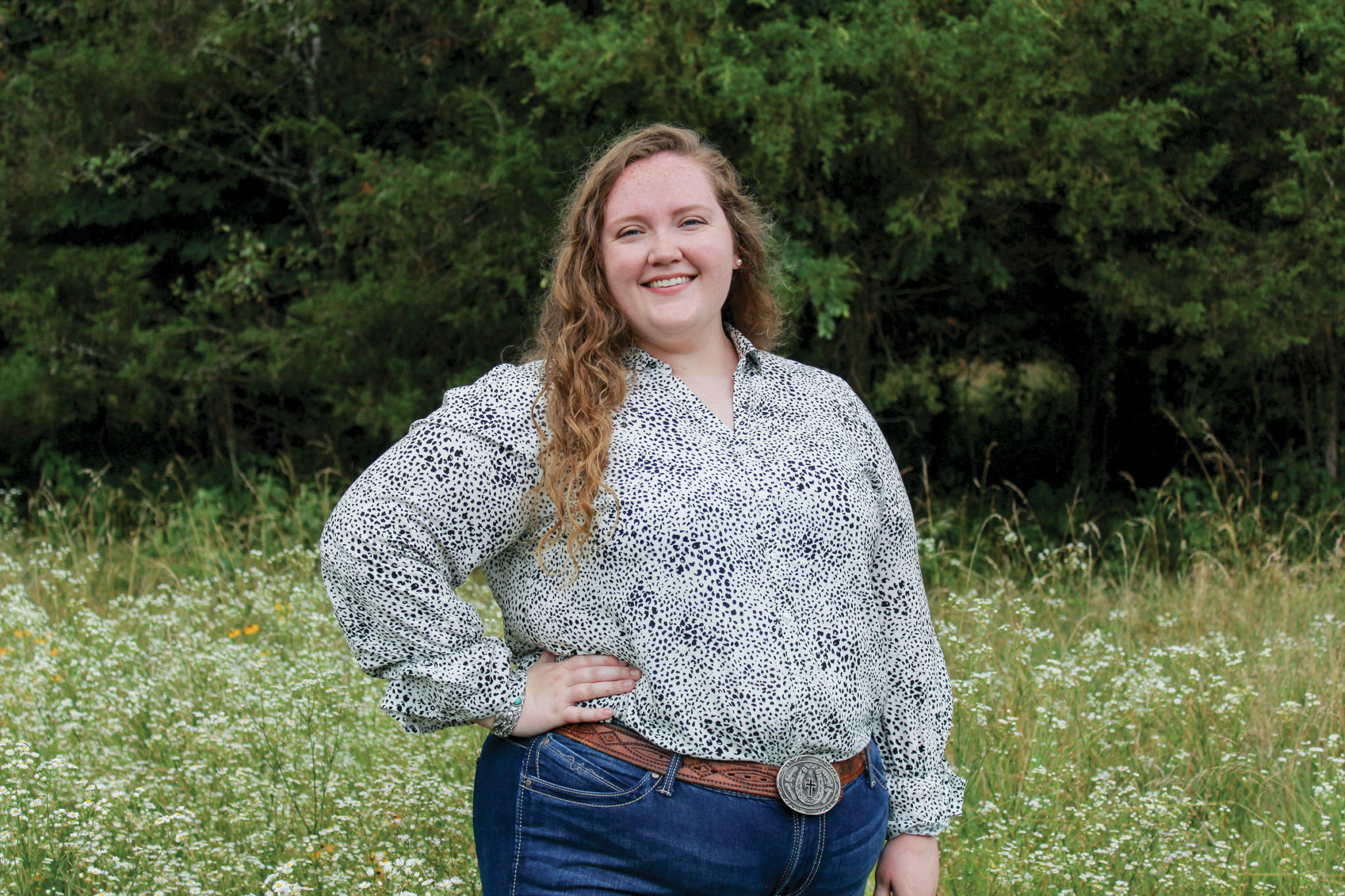
Photo by Shelbie Warner
Eager for more information, Gafford—who aspires to manage her own agricultural operation—jumped at the chance to engage in research.
“Without Dr. Tewari, I still would not know how much of an impact climate change truly has on agriculture and our environment,” she says. “Due to severe impacts in the Earth’s changing weather pattern, many agricultural operations are suffering in both the overall production and productivity of their crops and livestock. These weather pattern changes have caused adverse effects on the overall quality and quantity of global food production.”
Wright, who raises Boer goats and aspires to be a veterinarian specializing in large animals, looked at how climate data is gathered and used, and how it correlates to livestock prices.
“An increasing human population puts tremendous pressure on crop and livestock production systems to meet the growing demand for food and fiber products across the globe,” she says. “Agriculture is critically dependent upon a stable or predictable climate to produce crops and livestock at the required rate.
“Reproduction, certain diseases, vector-borne diseases and many more categories are influenced by weather patterns. By understanding climate change and climatic parameters, we can begin to develop methods to limit damages, costs and future issues.”
Tewari said involving students in research allows them to take classroom lessons into the real world.
“Engaging them in research prepares them for a career,” she says. “This is all going to be something they will take forward from here. Climate change will always be a big topic.”
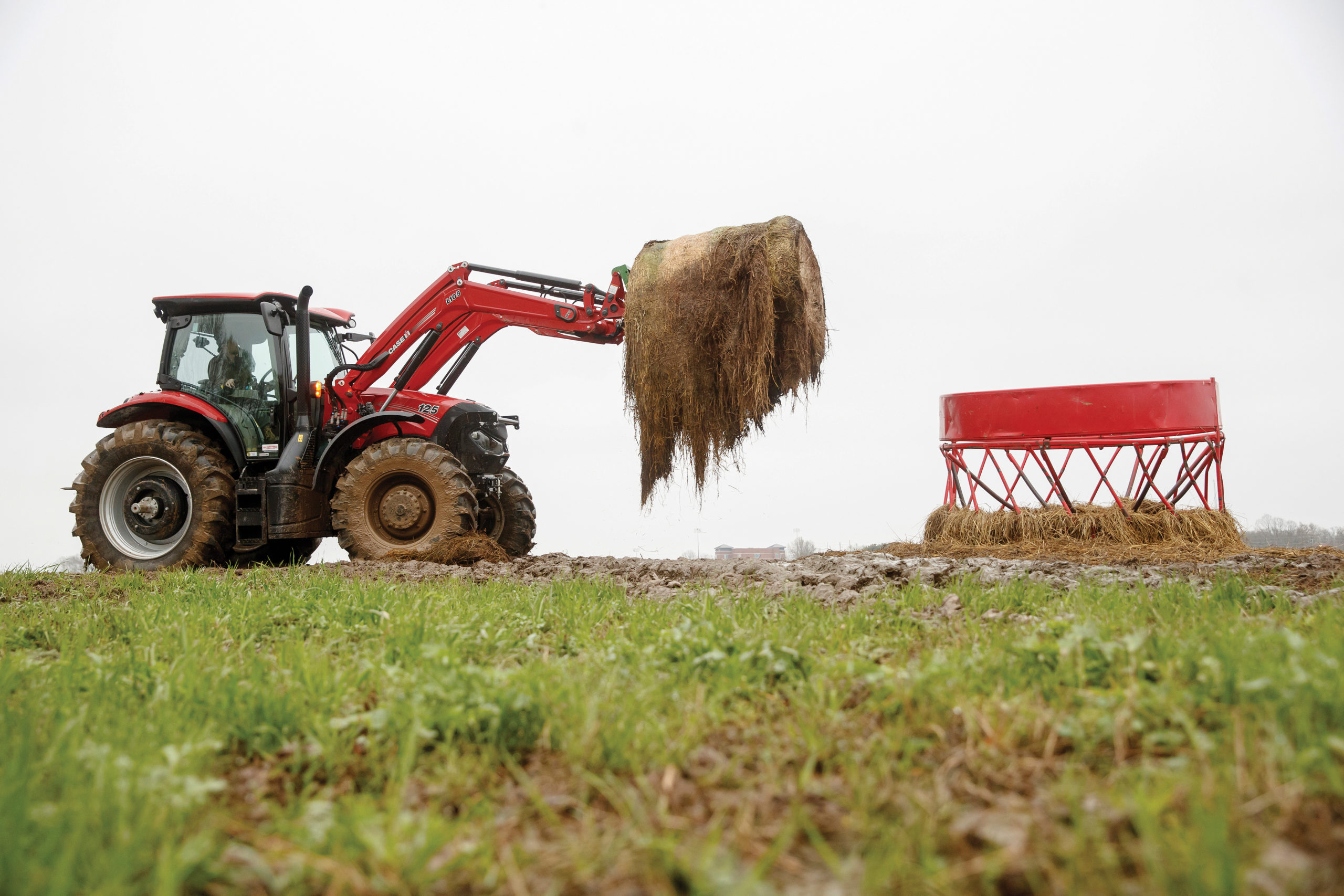
Photo by Nathan Morgan
